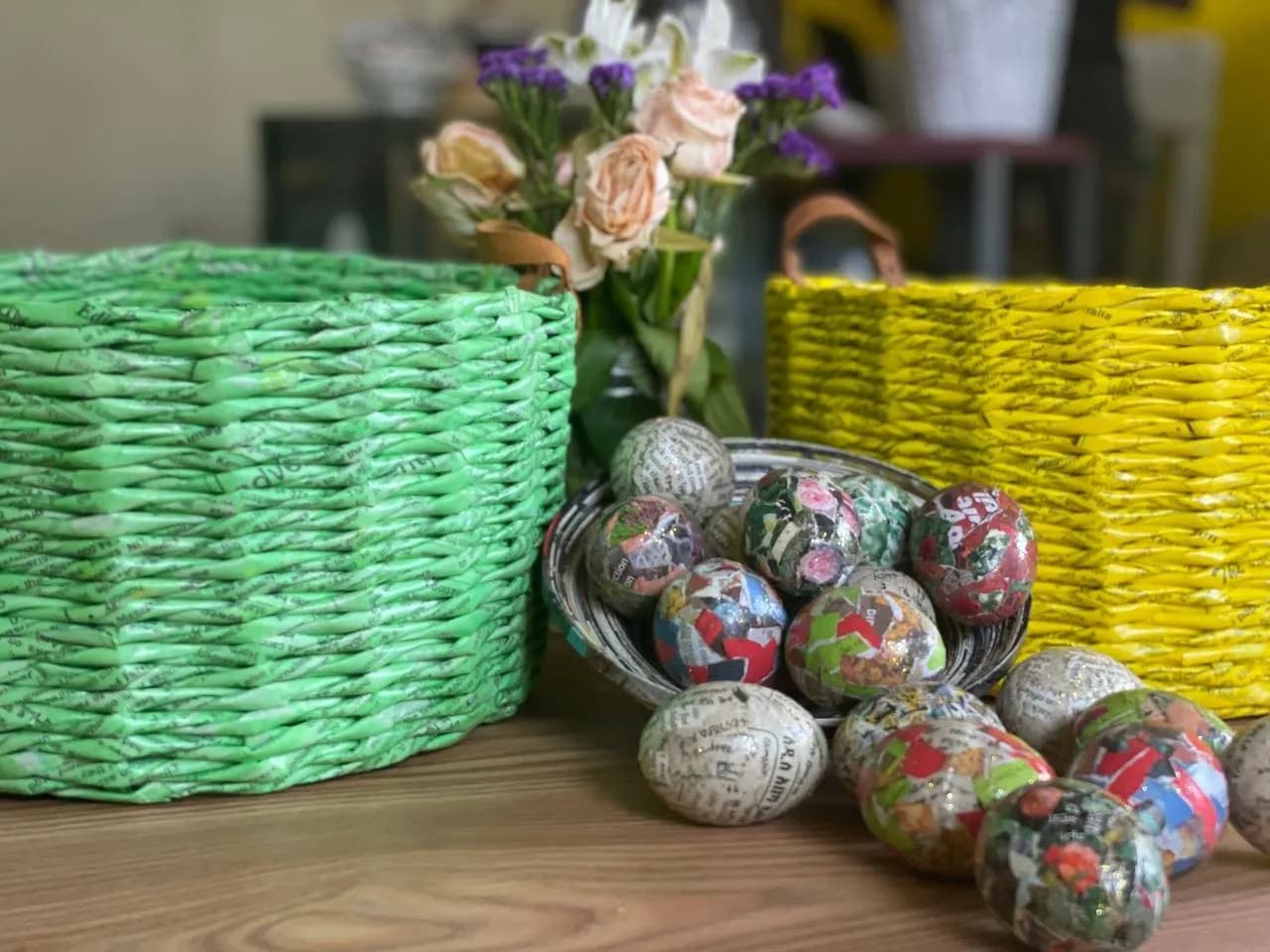Progress for 0 ad
Progress for 1 ad
Progress for 2 ad
Progress for 3 ad
Progress for 4 ad
Progress for 5 ad


Daniel Metaferiya
Addis Ababa, Ethiopia

A bustling city like Addis Ababa relies on a steady circulation of printed communication. Government documents, school materials, and even simple promotional flyers are passed around on paper. While non-biodegradable plastic waste often makes headlines, paper also subtly disturbs the balance of natural environments. Kirtas, a local company specialized in repurposing the capital’s paper waste, has carved out a loyal customer base for its homeware and packaging products.
Hanna Shieferaw, General Manager of Kirtas Packaging, says only a few people are engaged in Ethiopia’s recycling business, despite the enormous amount of waste generated. She points out that most of her overhead costs involve buying glue, decorations, accessories, and staff wages for her eight employees.
“The paper is usually available for free,” Hanna told Shega.
The company crafts handbags, vases, plates, branded packaging, laundry baskets, and even furniture from recycled paper. Kirtas has cultivated a reliable customer base for its customized packaging as more and more companies adopt an eco-friendly approach. Prices for customized baskets start at 300 birr. Since every material might not always be readily available, products often require creativity to fit the design and aesthetic purpose.
“Every product is handmade,” says the manager.” One item usually takes two days.”
Hanna, a mechanical engineering graduate with a penchant for entrepreneurship, entered the recycling business in search of an overlooked market. After doing a little research, she realized that recycling paper could become a source of reliable income while serving a good cause.
While Addis Ababa generates nearly 800,000 tons of waste, just about 5% of it is paper waste. However, the absence of a well-developed waste management system means everything is aggregated for dumping at landfills.
Hanna hopes her products minimize the amount of paper waste that ends up in these landfills. While she acknowledges the small size of her company, the ambitious owner recognizes significant room for growth with recent policy changes.
A bill currently making its rounds in Ethiopia’s parliament imposes penalties on users and producers of single-use plastic bags. The regulatory shift that aligns with the government’s overall green ambitions is set to unlock a new market for paper bags
Hanna tries to rely on locally made products for glue, decorations and accessories with the hopes of developing a sustainable and reliable supply chain. Particular attention is given to ensure that the products are waterproof to entice new customers and establish a reliable brand.
While Hanna entered the business with no prior background, she works to continuously upgrade her skills online.
“I take design inspirations from everywhere,” Hanna says.
👏
😂
❤️
😲
😠

Daniel Metaferiya
Daniel Metaferiya is a writer, journalist and radio host, with a keen interest in technology. He follows developments in Ethiopia's startup ecosystem closely and is passionate about profiling unique MSMEs.
Your Email Address Will Not Be Published. Required Fields Are Marked *